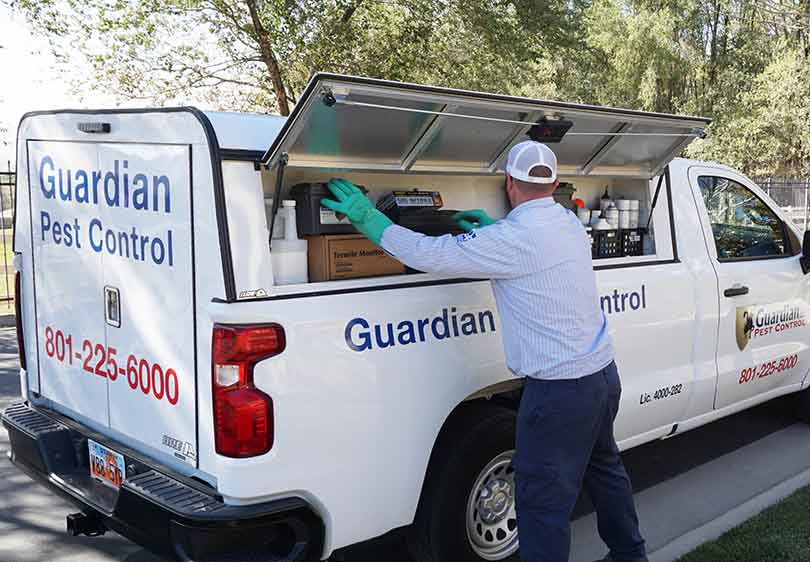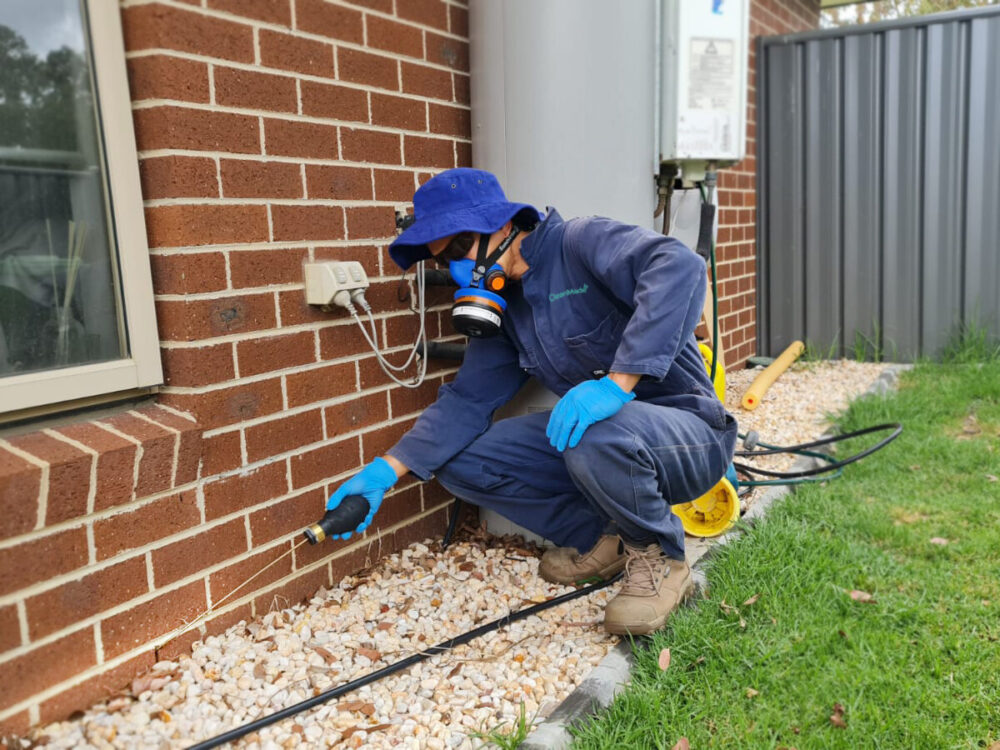Orem Pest Control Providers: Customized Solutions for each Invasion
Wiki Article
Uncovering the Different Kinds Of Parasite Control Techniques and Their Applications
Bug control is a critical element of keeping a healthy and balanced and safe atmosphere, whether it be in domestic, business, or agricultural setups. From chemical techniques that target particular insects to organic techniques that harness natural predators, the realm of pest control is diverse and large.Chemical Insect Control Techniques
Chemical bug control methods are widely made use of in farming and insect administration to efficiently remove or manage pest invasions. These techniques involve using chemical materials, such as insecticides, pesticides, and herbicides, to reduce or remove bug populations that present a threat to crops, livestock, or human health and wellness. Chemicals, for instance, target specific pests like insects, rodents, or weeds, disrupting their life cycles or triggering direct injury upon contact. Herbicides are particularly designed to manage unwanted plants that competes with plants for sources and nutrients. Pesticides, on the other hand, are utilized to deal with insect parasites that can harm plants and transmit diseases.While chemical bug control techniques can be very reliable in handling insect populaces, they additionally increase concerns regarding potential environmental and wellness dangers. It is important to adhere to security guidelines, utilize integrated pest management approaches, and take into consideration different methods to minimize the negative effects of chemical parasite control strategies.
Biological Bug Control Approaches
 Biological parasite control techniques utilize living organisms to manage and minimize pest populaces in a environmentally friendly and lasting way. This approach includes introducing all-natural killers, bloodsuckers, or virus to control pests without the need for synthetic chemicals. One usual technique is the release of ladybugs to battle aphids in yards, as ladybugs are natural predators of these destructive parasites. One more example is making use of Bacillus thuringiensis (Bt), a microorganism that creates toxins dangerous to specific insect larvae, to control caterpillars and insects.
Biological parasite control techniques utilize living organisms to manage and minimize pest populaces in a environmentally friendly and lasting way. This approach includes introducing all-natural killers, bloodsuckers, or virus to control pests without the need for synthetic chemicals. One usual technique is the release of ladybugs to battle aphids in yards, as ladybugs are natural predators of these destructive parasites. One more example is making use of Bacillus thuringiensis (Bt), a microorganism that creates toxins dangerous to specific insect larvae, to control caterpillars and insects. 
Organic bug control techniques provide several benefits over chemical approaches. Generally, biological insect control methods offer a effective and natural choice to standard chemical treatments, promoting a well balanced environment and healthier environments.
Physical Insect Control Approaches
Utilizing physical methods to regulate bugs entails using mechanical or non-chemical means to minimize and handle parasite invasions efficiently. These approaches depend on physical barriers, catches, and other methods to hinder and get rid of pests without making use of hazardous chemicals. One usual physical insect control approach is the setup of screens, fencings, or internet to obstruct insects from entering certain areas. This method is particularly reliable in staying out insects and tiny animals from structures or yards.One more physical technique is the usage of catches, such as breeze traps for rodents or pheromone traps for bugs. These traps aim to capture pests without presenting any kind of threat to human beings or the setting. Additionally, physical control methods can include methods like handpicking insects off plants, utilizing vacuum gadgets to eliminate bugs, or utilizing warm treatments to eliminate bed bugs and other pests in infested locations.
Integrated Pest Management Strategies
Applying a holistic approach to pest monitoring, navigate to these guys Integrated Parasite Administration (IPM) methods intend to combine different efficient strategies to stop and regulate pest invasions while decreasing ecological influence and making certain sustainable bug control practices. IPM entails the integration of several control approaches such as organic control, cultural practices, mechanical control, and the careful use chemicals.

In addition, IPM emphasizes the significance of surveillance and assessing pest populations to establish one of the most suitable control methods. By implementing IPM methods, pest control efforts come to be a lot more targeted and reliable, minimizing the risks linked with excessive chemical use and advertising long-term bug management remedies.
Natural and Organic Pest Control Options

One preferred organic parasite control approach is neem oil, acquired from the seeds of the neem tree, which acts as a repellent and interrupts the development and development of bugs. Diatomaceous earth, an all-natural silica-based powder, is an additional effective natural parasite control option that works by drying out insects upon get in touch with. By including natural and organic insect control alternatives right into insect monitoring strategies, individuals can properly control bugs while minimizing damage to the setting and promoting lasting practices.
Final Thought
In conclusion, numerous pest control strategies such as chemical, biological, physical, incorporated insect management, and all-natural choices are available for properly taking care of bug infestations. Each technique has its own advantages and applications relying on the kind of parasite and the setting. By recognizing the various kinds of parasite control strategies and their applications, people this post can make informed decisions on the most appropriate method to regulate parasites and safeguard their residential property.Chemical pest control methods are extensively made use of in farming and pest monitoring to efficiently remove or regulate pest invasions - Orem Pest Control. All-natural bug control approaches involve utilizing biological control agents, such as predators or parasites, to manage pest populations. By incorporating natural and natural pest control alternatives right into insect management approaches, people can properly manage insects while reducing damage to the atmosphere and promoting sustainable practices
In conclusion, various parasite control strategies such as chemical, organic, physical, integrated insect management, and all-natural choices are offered for effectively taking care of bug infestations. By recognizing the different kinds of insect control methods and their applications, individuals can make informed choices on the most proper method to control parasites and shield their residential or commercial property.
Report this wiki page